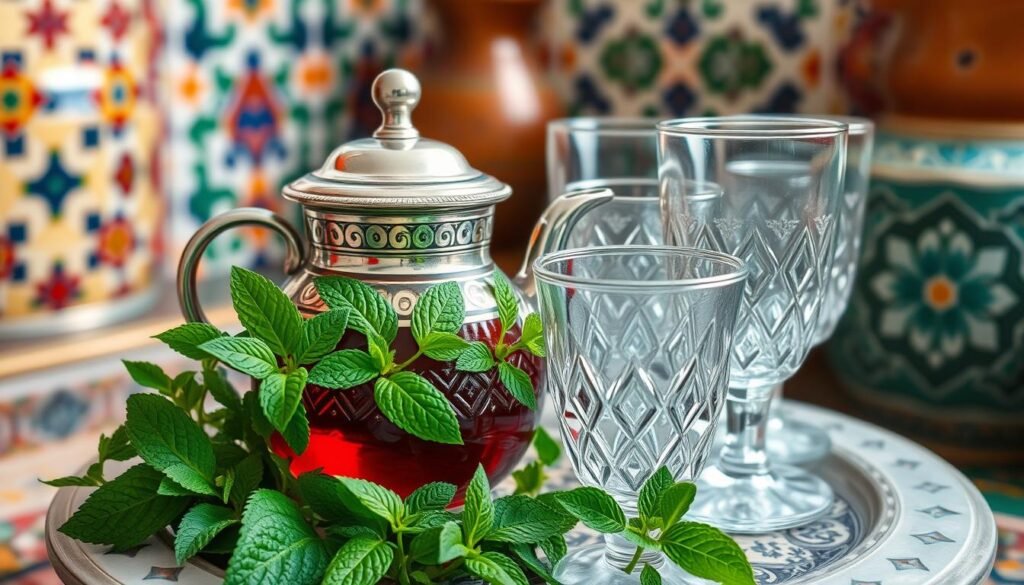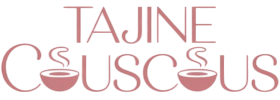
Imagine strolling through the vibrant markets of Marrakech, the air filled with the fragrant aroma of spices, fresh herbs, and sweet teas. Moroccan tea isn’t just a beverage—it’s a cultural ritual, a symbol of hospitality, and a comforting tradition handed down through generations. But what if you’re sensitive to caffeine, or simply want to enjoy the soothing qualities of tea without the jitters? The good news is, you can indulge in delicious, authentic Moroccan-inspired teas that are naturally caffeine-free, all while embracing the rich culinary heritage of Morocco.
In this comprehensive guide, we’ll explore easy Moroccan tea recipes without caffeine that you can prepare at home. Whether you’re seeking a calming herbal infusion, a flavorful fruit-based concoction, or a traditional Moroccan blend minus the caffeine, you’ll find everything you need here. Plus, I’ll share personal anecdotes, expert insights, and practical tips to make your tea-making experience enjoyable and authentic.
The Heart of Moroccan Tea Culture: A Brief Overview
Before diving into recipes, it’s essential to understand what makes Moroccan tea so special. Traditionally, Moroccan tea, especially Moroccan mint tea, is prepared with green tea (commonly gunpowder tea), fresh mint, and a generous amount of sugar. It’s more than a drink—it’s a symbol of hospitality, friendship, and community.
However, the caffeine in green tea might not suit everyone. Fortunately, Morocco’s rich herbal and fruit traditions offer a plethora of caffeine-free options that honor the spirit of Moroccan hospitality. According to food historians, Moroccan herbal infusions—like bissap (hibiscus), kamoun (cumin), and za’atar—are longstanding staples that can be adapted into delightful caffeine-free teas.
Why Choose Caffeine-Free Moroccan Tea Recipes?
There are several compelling reasons to explore caffeine-free tea options:
- Health Benefits: Many herbs and fruits used in Moroccan infusions are packed with antioxidants, vitamins, and minerals that support overall health.
- Gentle on the Heart: Caffeine can cause jitters, insomnia, or increased heart rate in sensitive individuals. A caffeine-free alternative offers a calming experience.
- Cultural Appreciation: Moroccan herbal teas are deeply rooted in tradition, often used for medicinal purposes or spiritual rituals.
- Versatility: Caffeine-free teas can be enjoyed anytime—morning, afternoon, or evening—without disrupting sleep patterns.
Essential Ingredients for Moroccan Caffeine-Free Teas
While traditional Moroccan teas rely on green tea, these caffeine-free recipes hinge on a variety of herbs, flowers, and fruits:
- Herbs: Mint (fresh or dried), chamomile, sage, thyme, and rosemary.
- Flowers: Hibiscus (for a tart, beautiful infusion), rose petals, and lavender.
- Fruits: Dried figs, dates, dried apricots, or fresh citrus peels.
- Spices: Cinnamon sticks, cardamom pods, ginger, and cumin.
- Sweeteners: Honey, agave syrup, or date syrup for authentic sweetness.
A tip from herbal medicine experts suggests combining herbs like chamomile and mint for a calming, digestive-friendly brew that echoes the soothing qualities of classic Moroccan tea.
Easy Moroccan Caffeine-Free Tea Recipes You Can Make at Home
Let’s explore some simple, authentic, and flavorful recipes that require minimal ingredients and effort. Each recipe offers a unique taste profile inspired by Moroccan flavors.
1. Moroccan Hibiscus & Mint Iced Tea
Why it’s special: Bright, tart, and refreshing—perfect for hot days and packed with antioxidants from hibiscus.
Ingredients:
- 1/4 cup dried hibiscus flowers
- Fresh mint leaves (a handful)
- 4 cups water
- Honey or agave syrup (to taste)
- Ice cubes
Preparation:
- Bring water to a boil and pour over dried hibiscus flowers in a heatproof pitcher.
- Cover and steep for 10 minutes.
- Strain the infusion into a separate container, discarding the flowers.
- Add fresh mint leaves and sweeten with honey while still warm.
- Allow to cool, then refrigerate until cold.
- Serve over ice with additional mint for garnish.
Health tip: Hibiscus is known for lowering blood pressure and supporting liver health, making this a nutritious choice. You can find high-quality dried hibiscus online or at specialty stores. For more health benefits, check out research on hibiscus’s medicinal properties.
2. Moroccan Rose & Cinnamon Herbal Tea
Why it’s delightful: Fragrant, floral, and warmly spiced—this tea embodies Moroccan elegance.
Ingredients:
- 1 tablespoon dried rose petals
- 1 cinnamon stick
- 2 cups water
- Honey or maple syrup (optional)
Preparation:
- Bring water to a boil.
- Add dried rose petals and cinnamon stick.
- Reduce heat and simmer for 5–7 minutes.
- Turn off heat and let steep for another 5 minutes.
- Strain into cups and sweeten if desired.
Pro tip: Rosewater can be added for extra floral aroma, or a few drops of rose extract for a more intense flavor. This tea is often enjoyed after meals as a digestif and mood booster.
3. Moroccan Ginger & Lemon Herbal Infusion
Why it’s invigorating: Spicy, citrusy, and soothing—great for digestion and immune support.
Ingredients:
- Fresh ginger root (a 2-inch piece, sliced)
- Lemon slices or lemon zest
- 2 cups water
- Honey (optional)
Preparation:
- Bring water to a boil and add ginger slices.
- Reduce heat and simmer for 10 minutes.
- Add lemon slices or zest and steep for another 5 minutes.
- Strain and serve warm or iced, sweetening as desired.
Health insights: Ginger is renowned for its anti-inflammatory and digestive properties. Combining it with lemon boosts vitamin C intake and supports immunity.
4. Moroccan Mint & Sage Tea
Why it’s calming: The combination of mint and sage offers a soothing, aromatic experience perfect for relaxation.
Ingredients:
- Fresh mint leaves
- Fresh or dried sage leaves
- 2 cups water
- Honey or stevia (optional)
Preparation:
- Boil water and pour over herbs in a teapot.
- Cover and steep for 7–10 minutes.
- Strain into cups and sweeten if desired.
Expert tip: Sage has antimicrobial properties and may help reduce inflammation, making this tea a great herbal remedy.
Creative Variations and Tips for Perfect Caffeine-Free Moroccan Teas
- Layer flavors: Combine herbs like mint and chamomile for a calming blend.
- Sweeten naturally: Use Moroccan date syrup or honey to add authentic sweetness.
- Add citrus: Orange or lemon zest enhances brightness and flavor complexity.
- Serve traditionally: Pour your tea from a height to aerate and enhance the flavor, mimicking Moroccan serving styles.
Comparing Traditional and Caffeine-Free Moroccan Teas: A Quick Overview
| Aspect | Traditional Moroccan Mint Tea | Caffeine-Free Moroccan-Inspired Teas |
|---|---|---|
| Main Ingredients | Green tea, fresh mint, sugar | Herbs, flowers, fruits, spices |
| Caffeine Content | High (green tea) | None |
| Preparation Style | Multiple infusions, pouring from height | Steeped like herbal infusions |
| Health Benefits | Energy boost, antioxidants | Calming, digestive, antioxidant-rich |
| Cultural Significance | Hospitality, social ritual | Herbal medicine, wellness focus |
This comparison highlights how caffeine-free options can embody Moroccan flavors and traditions without the stimulating effects of caffeine.
Frequently Asked Questions (FAQs)
Q1: Can I replace hibiscus with other flowers?
Absolutely. For a different flavor, try dried lavender or chamomile. Both offer calming properties and delightful aromas.
Q2: Are these teas suitable for children?
Yes, most of these herbal infusions are gentle and safe for children, especially with natural sweeteners. Always consult with a healthcare provider if unsure.
Q3: How long do these teas last?
Prepared herbal teas can be stored in the refrigerator for up to 2 days. For the freshest flavor, enjoy within 24 hours.
Q4: Can I make these recipes ahead of time?
Yes. You can prepare the herbal infusions in advance and refrigerate. Reheat gently before serving if desired.
Q5: Are there any herbs I should avoid during pregnancy?
Some herbs like sage and certain high-dose spices should be consumed in moderation during pregnancy. Always consult with a healthcare professional.
Final Thoughts: Embracing Moroccan Flavors Without Caffeine
Exploring caffeine-free Moroccan teas opens a world of aromatic, healthful, and culturally rich beverages. These recipes not only honor Morocco’s vibrant herbal and culinary traditions but also cater to modern lifestyles seeking wellness and relaxation. Whether you’re brewing a calming rose and cinnamon tea or a zesty ginger infusion, you can enjoy the depth and warmth of Moroccan flavors without caffeine.
As you embark on your tea-making journey, remember that the true magic lies in the ritual—boiling water, selecting fresh herbs, and savoring each sip with mindfulness. So, gather your ingredients, channel your inner Moroccan host, and indulge in these delightful caffeine-free teas that bring a touch of Morocco into your home.
For further inspiration, consider exploring Moroccan culinary resources or herbal medicine guides, and don’t hesitate to experiment with your own flavor combinations. Your taste buds—and your body—will thank you.
